Embarking on an odyssey from the captivating set of Shark Tank, Zuvaa, an online marketplace for African-inspired fashion, witnessed a trajectory of highs and lows that unfolded beyond the televised pitch. This article delves into the post-Shark Tank journey of Zuvaa, exploring its evolution, challenges faced, and the entrepreneurial resilience demonstrated by its founder, Kelechi Anyadiegwu.
From its initial surge in popularity to the operational hurdles leading to temporary closure, we navigate through the narrative of Zuvaa’s endeavors, shedding light on the lessons learned, the platform’s current status, and the entrepreneur’s subsequent ventures in the dynamic world of e-commerce.
What Is Zuvaa:
Functioning as an online marketplace, Zuvaa facilitates the sale of fashion and accessories inspired by Africa, sourced from designers and artisans spanning the African continent and its diaspora. Established in 2014 by entrepreneur Kelechi Anyadiegwu, the platform endeavors to showcase and celebrate the diverse and vibrant cultures of Africa through its distinctive, vivid, and daring fashion offerings.
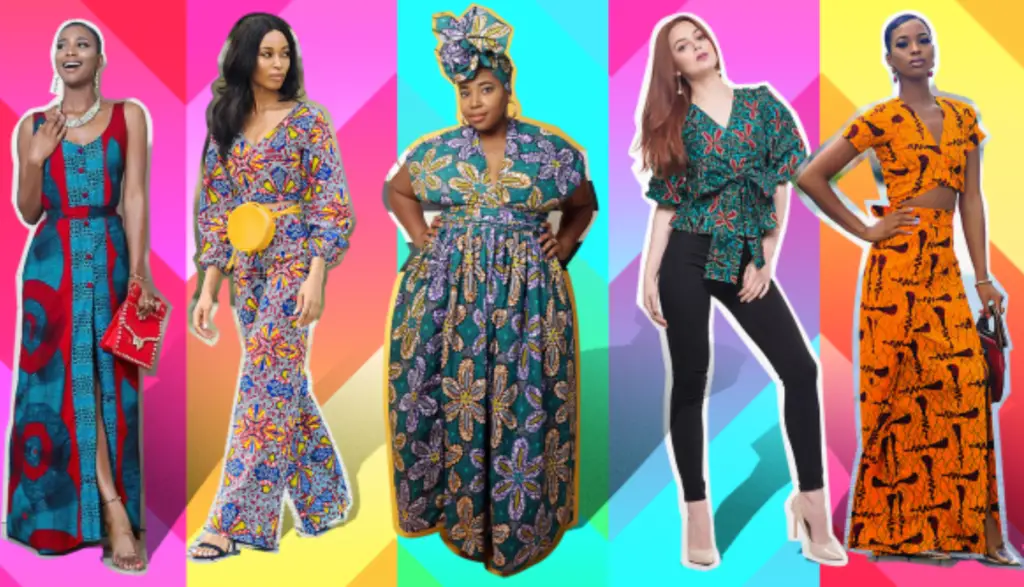
The Mission Of Zuvaa
Zuvaa’s primary objective is to amplify the visibility of African cultures, providing a virtual stage for designers to exhibit their creations and gain acknowledgment on a global scale. Beyond the transactional aspect, Zuvaa serves as a conduit for cultural promotion and awareness [2].
In tandem with the retail facet, Zuvaa extends its commitment to African fashion through a blog, featuring narratives surrounding African designers, prevailing fashion trends, and cultural insights. This multifaceted approach contributes to a holistic representation of the rich tapestry of African creativity and heritage.
All merchandise showcased on Zuvaa’s platform originates from independent designers and producers based in Africa, ensuring each acquisition tells a unique story. In opting to patronize Zuvaa, customers not only acquire exceptional items but also actively support small businesses.
Zuvaa’s diverse selection encompasses an array of offerings, ranging from contemporary apparel to traditional jewelry and handmade crafts. Crafted by skilled African artisans and designers, each item encapsulates a piece of Africa’s rich artistic legacy, providing customers with an opportunity to embrace the continent’s cultural and sartorial diversity.
Pros:
Unique Product Offering
One of the standout features of Zuvaa is its commitment to offering a distinctive and culturally rich product line. The fashion industry often gravitates toward mainstream trends, but Zuvaa’s focus on African-inspired designs provides a refreshing alternative. This uniqueness can serve as a significant competitive advantage, appealing to a demographic that craves individuality in their fashion choices [3].
Cultural Representation
Zuvaa’s dedication to showcasing African culture through its designs fosters a sense of representation for a demographic that is often underrepresented in the mainstream fashion scene. This cultural inclusivity not only resonates with customers seeking authenticity but also contributes to the broader narrative of diversity in the fashion industry.
Mentorship and Guidance
Securing an investment deal on Shark Tank means gaining access to the expertise and networks of experienced entrepreneurs. The mentorship received from the sharks can be instrumental in steering the business toward sustainable growth. The strategic advice and industry insights provided by the sharks can help Zuvaa navigate challenges and capitalize on opportunities in the competitive fashion market.
E-commerce Potential
Zuvaa’s focus on an e-commerce model aligns well with the evolving consumer landscape. With the growing trend of online shopping, especially in the wake of the COVID-19 pandemic, having a strong online presence positions Zuvaa for scalability and accessibility. This digital approach can potentially lead to lower overhead costs and broader market reach.
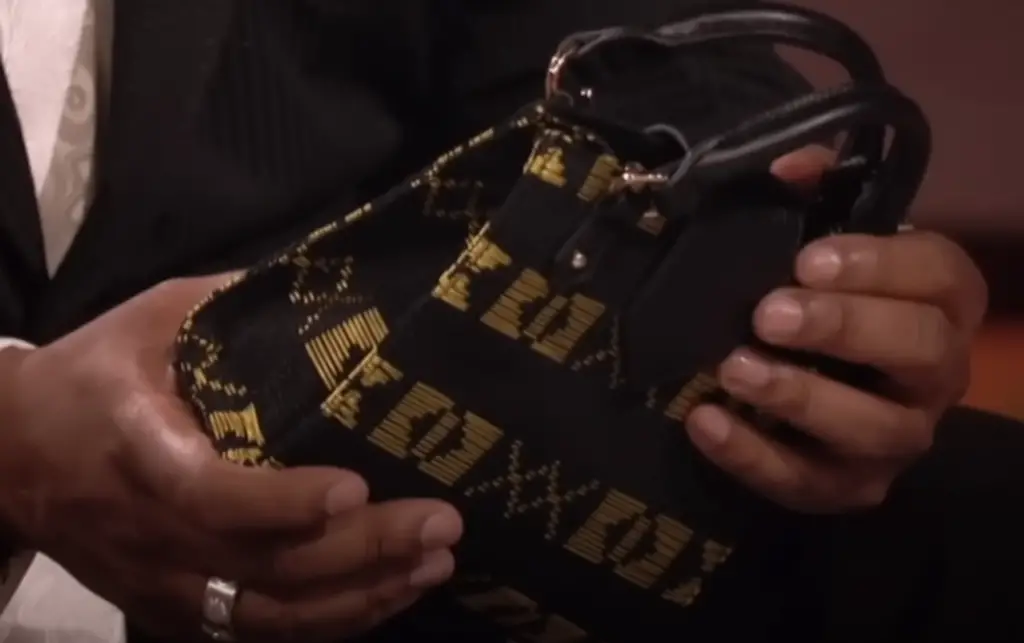
Cons:
Niche Market Limitations
While the uniqueness of Zuvaa’s products is a strength, it also poses a potential limitation. A niche market, by definition, has a smaller customer base compared to mass-market products. Zuvaa must carefully balance its niche appeal with strategies to broaden its customer reach without diluting its cultural authenticity.
Cultural Appropriation Concerns
The fashion industry has faced criticism for cultural appropriation, where elements of a particular culture are adopted without proper understanding or respect. Zuvaa must navigate this delicate balance with sensitivity to avoid any backlash or accusations of cultural insensitivity. Clear communication about the cultural significance of its designs and partnerships with African artisans could help address this concern.
Dependency on Investment
While securing an investment deal on Shark Tank can be a game-changer, there is a risk of over-dependency on external funding. Zuvaa must develop a robust business model and revenue streams to ensure long-term sustainability. Relying solely on investment capital without a clear path to profitability could lead to challenges down the line.
Competitive Fashion Landscape
The fashion industry is highly competitive, with trends evolving rapidly. Zuvaa faces the challenge of staying relevant and continuously innovating to keep pace with changing consumer preferences. Effective marketing strategies and a keen understanding of market trends are crucial for Zuvaa to thrive in this dynamic landscape.
Operational and Supply Chain Challenges
Maintaining quality control and managing a streamlined supply chain can be challenging, especially when dealing with culturally inspired designs. Zuvaa must ensure consistency in product quality, timely deliveries, and ethical sourcing practices to build and retain customer trust. Any lapses in these areas could negatively impact the brand’s reputation.
Who May Benefit From Using?
Cultural Enthusiasts:
- Demographic: Individuals who appreciate and celebrate cultural diversity;
- Benefit: Zuvaa’s designs offer a way for cultural enthusiasts to express their appreciation for African heritage through fashion [4];
Fashion-forward Consumers:
- Demographic: Trend-conscious individuals looking for unique and stylish clothing;
- Benefit: Zuvaa’s commitment to offering a distinctive product line caters to those seeking fashion that stands out from mainstream trends;
Representation Seekers:
- Demographic: Consumers who value representation and inclusivity in the fashion industry;
- Benefit: Zuvaa’s dedication to showcasing African culture may resonate with individuals seeking more diverse and authentic representation in fashion;
Online Shoppers:
- Demographic: Consumers are comfortable with and inclined toward online shopping;
- Benefit: Zuvaa’s e-commerce focus provides convenience and accessibility, allowing online shoppers to explore and purchase its unique designs from anywhere;
Supporters of Ethical Fashion:
- Demographic: Individuals who prioritize ethical and sustainable fashion practices;
- Benefit: Zuvaa’s emphasis on cultural authenticity and potential partnerships with African artisans aligns with the values of those seeking ethically produced clothing;
Customers Seeking Limited Editions:
- Demographic: Individuals who appreciate limited edition or exclusive clothing items;
- Benefit: Zuvaa’s niche market approach may attract customers who enjoy owning unique pieces that are not mass-produced;
Entrepreneurs and Startups:
- Demographic: Aspiring entrepreneurs and startup founders in the fashion industry;
- Benefit: Zuvaa’s journey on Shark Tank and potential success could serve as inspiration and provide insights for those navigating the challenges of launching and growing a fashion business;
Cultural Events and Celebrations:
- Demographic: Attendees of cultural events, festivals, or individuals celebrating special occasions;
- Benefit: Zuvaa’s culturally inspired designs could be popular choices for individuals wanting to showcase their heritage during cultural celebrations and events;
Customers Supporting Small Businesses:
- Demographic: Consumers who actively support small and independent businesses;
- Benefit: Supporting Zuvaa contributes to the growth of a smaller, niche brand in the fashion industry, and customers may find satisfaction in promoting diversity in the market;
Gift Shoppers:
- Demographic: Individuals looking for unique and meaningful gifts;
- Benefit: Zuvaa’s culturally rich designs may make for thoughtful and distinctive gifts, especially for those who appreciate the beauty of diverse cultures;
About the Founders Of Zuvaa
Beyond her professional endeavors, Kelechi has actively contributed to her community as a board member, social media specialist, and community manager for the Young Men & Women’s African Heritage Association from 2013 to 2014. Currently, she wears the hat of a brand specialist at UjuuMedia, simultaneously holding the positions of founder and CEO.
Entering the Shark Tank with a compelling proposition, Kelechi and three other women adorned in striking African attire bring forth the concept of bridging African designers with the global market. As the driving force behind Zuvaa, Kelechi seeks a substantial investment, proposing $ 460,000 in exchange for a 10% stake in her business, valuing it at an impressive $ 4.6 million. Daymond, one of the Sharks, appears visibly taken aback by the magnitude of this valuation.
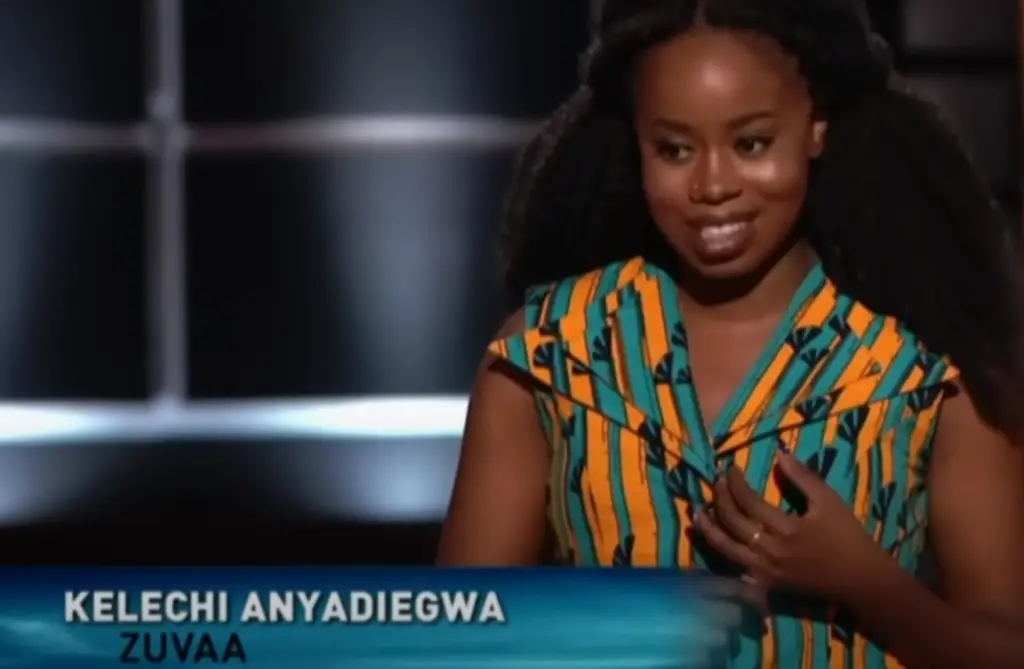
Kelechi’s journey is rooted in her childhood experiences in Nigeria, where she was captivated by the allure of distinctive designs and vibrant textiles. Recognizing the brilliance of African designers and their potential to create stunning products, Kelechi identified a gap – a lack of tools and resources hindering these designers from reaching a global audience. In response, she conceptualized and brought to life Zuvaa.
Zuvaa, under Kelechi’s leadership, has evolved into the world’s fastest-growing online design marketplace. The platform serves as a nexus, connecting exceptionally talented designers with global consumers on the lookout for unique and exclusive finds.
Kelechi elucidates the process: buyers navigate the online marketplace featuring over 85 carefully vetted designers, and post-purchase, items are shipped directly from the designer or the fulfillment center in Atlanta, Georgia.
The Pitch Of Zuvaa At Shark Tank
The Shark Tank presentation features real-life examples of Zuvaa’s impact. Madison showcases an ensemble from Titi’s Closet, a Nigerian designer, featuring intricate peplum detailing. Michelle dons an outfit crafted by a Zambian designer known for blending wax designs with chiffons in her fabrics. Kelechi emphasizes the diversity, highlighting a beachy, all-chiffon jumpsuit from another designer.
Through Zuvaa, Kelechi envisions not only a business but also a medium to showcase the beauty of Africa through design, inviting the Sharks to join her in this impactful journey.
Kelechi Anyadiegwu, the mastermind behind Zuvaa, displays her entrepreneurial prowess by distributing garment samples to the Sharks in the Shark Tank [6]. Daymond expresses heightened enthusiasm, given his close ties to the fashion world. Each Shark receives a distinct piece, contributing to a lively exchange. Daymond finds himself holding a garment crafted from ashoke, a woven textile, while another dress hails from Benin, featuring Ankara print, wax print, and suede.
Kevin, adding a touch of humor, contemplates wearing it to the pool, emphasizing his willingness to explore diverse fashion choices.
Guest Shark Sara Baker delves into the sourcing aspect, inquiring how Kelechi discovers these talented women. Kelechi details their approach, predominantly relying on word of mouth and enforcing a rigorous vetting policy. Designers interested in joining Zuvaa must send samples, enabling quality control assessments and an understanding of the designer’s fulfillment and customer service processes.
Lori inquires about the inception of the idea, to which Kelechi shares her connection as a first-generation Nigerian. Growing up surrounded by these culturally rich designs, Kelechi identified a gap in accessibility for African prints in Western markets. Thus, Zuvaa was born during her grad-school years at Carnegie Mellon, stemming from her freelance work in social media marketing, where inquiries about her clothing became a frequent occurrence.
Zuvaa emerges as the world’s fastest-growing online design marketplace, connecting brilliant designers with global consumers in search of exclusive finds. Kelechi elucidates the process: buyers explore the online marketplace with over 85 designers, and post-purchase, items are shipped from either the designer or the fulfillment center in Atlanta, Georgia.
As the Sharks delve deeper into the financials, Kelechi reveals Zuvaa’s impressive monthly revenue of $ 220,000, with a monthly profit of approximately $ 50,000 [7]. The business model comprises a 17% flat commission for designers on the marketplace and a $ 50 monthly fee. The Sharks are impressed with the 120,000 monthly website visitors.
However, the Sharks grapple with the valuation of $ 4.6 million and the substantial ask of $ 460,000 for a 10% stake. Mark questions Kelechi about her plans for scaling the business, emphasizing the need for significant growth. Despite acknowledging Kelechi’s remarkable achievements, Mark opts out of the deal, expressing reservations about the high valuation.
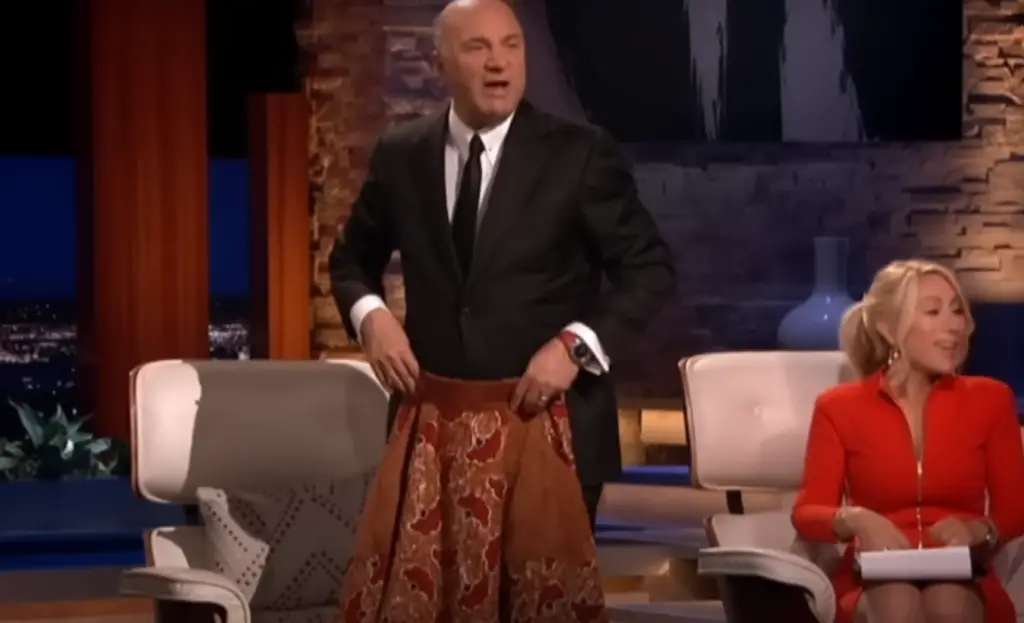
Sara commends Kelechi’s accomplishments but struggles with the valuation, ultimately bowing out. Lori, echoing the sentiment of Kelechi’s impact, gracefully exits the deal, leaving Kevin and Daymond in contention.
Daymond, recognizing the potential legal complexities of dealing with numerous designers, regrettably opts out. Kevin, the sole remaining Shark, offers a loan deal, proposing $ 460,000 as a loan at 12% interest in exchange for 10% equity. Kelechi, with determination to retain control, declines Kevin’s offer, signaling her resolve to propel Zuvaa’s growth independently. The Sharks, though impressed, collectively pass on investing in Zuvaa, leaving Kelechi steadfast in her mission to expand the brand’s global impact.
Zuvaa After The Shark Tank
Zuvaa has maintained its position as one of Africa’s most active online marketplaces for apparel and textiles, demonstrating resilience since its Shark Tank appearance. The landing page, however, has been criticized for being overly stimulating, potentially overwhelming visitors initially.
Since its early days, Zuvaa has undergone significant evolution, expanding its offerings to showcase a more extensive selection of African designers. The platform now features a sales section with items priced between $ 45 and $ 140 on the higher end, catering to a broader range of budget preferences.
However, there have been some reported issues with Zuvaa’s website performance. Users have experienced decreased responsiveness and increased RAM consumption, particularly when using sort and filter tools. These tools, crucial for generating sales and enhancing the shopping experience, seem to need to be addressed, impacting the overall usability of the platform.
In 2019, Kelechi Anyadiegwu, the founder of Zuvaa, announced the closure of the company. The explanation provided in a published letter stated that rapid growth outpaced the company’s infrastructure, leading to difficulties in managing increased demand. While originally slated for reopening in 2020 under new management, Zuvaa’s closure has been indefinite.
Nevertheless, Kelechi Anyadiegwu has continued her entrepreneurial journey with the launch of UjuuMedia. Despite the challenges faced with Zuvaa’s closure, this new venture indicates growth and resilience on her part, positioning herself for future success in the business world. The experiences and lessons learned from Zuvaa’s journey have likely contributed to her evolution as an entrepreneur.
The Net Worth Of Zuvaa

However, the current net worth of Zuvaa as of 2023 is not known since the company has been rebranded to Ujuu Media2. Despite the rebranding, it’s notable that the company faced some issues with vendors and contractors.
Alternatives To Zuvaa:
Afrocentric Clothing Brands:
Like Zuvaa, these brands specialize in Afrocentric fashion, offering a range of clothing inspired by African culture. Each brand, however, has its design aesthetic and may focus on specific regions or traditions.
Ethical and Sustainable Fashion Brands:
For those who prioritize ethical and sustainable practices, these brands offer clothing with a focus on fair labor, environmentally friendly materials, and transparency in the supply chain.
Global and Cultural Fashion Marketplaces:
Online marketplaces provide a platform for various independent sellers and designers, allowing customers to explore a wide range of culturally inspired fashion from different creators.
Custom and Made-to-Order Services:
These platforms allow customers to customize their clothing, including the choice of fabrics, styles, and sizes. While not specifically Afrocentric, they offer a personalized approach to fashion.
Fashion Subscription Boxes:
Subscription boxes curate personalized fashion selections based on individual preferences. While not focused on cultural or ethnic themes, they offer variety and surprise in each shipment.
African Luxury Fashion Houses:
These brands cater to a more upscale market, offering high-end African-inspired fashion with a focus on luxury materials, craftsmanship, and unique designs.
Cultural Collaborations with Mainstream Brands:
Larger retailers occasionally collaborate with designers from different cultural backgrounds, bringing diverse and unique fashion to a broader audience.
Fair Trade Fashion Brands:
These brands prioritize fair trade practices, ensuring that artisans and workers are paid fairly for their labor, and often incorporate cultural influences into their designs.
DIY and Upcycled Fashion:
For those who prefer a hands-on approach, exploring thrift stores or engaging in do-it-yourself (DIY) fashion projects allows for unique and personalized creations [10].
Global Streetwear Brands:
Streetwear brands with a global influence often incorporate diverse cultural elements into their designs, providing a contemporary and urban aesthetic.
FAQ:
- Why are marketplaces so popular in the United States?
Marketplaces in the United States have gained popularity due to their ability to provide consumers with a vast selection of products from various sellers, offering convenience, competitive pricing, and a diverse range of choices. This model allows for efficient transactions and a one-stop shopping experience.
- Why did Zuvaa go out of business?
Zuvaa faced challenges related to its rapid growth, leading to operational difficulties in handling increased demand. The company announced its closure in 2019, citing the need for a more robust infrastructure to manage the expansion effectively.
- Why did Lori Greiner start her business?
Lori Greiner ventured into entrepreneurship driven by a desire to bring innovative products to market. Her journey began with the creation of her earring organizer, which marked the inception of her entrepreneurial career. Lori is known for her expertise in product development and her ability to identify market needs.
- Why did Lori Greiner become an entrepreneur?
Lori Greiner became an entrepreneur to pursue her passion for creating and bringing innovative products to consumers. Her entrepreneurial journey started with the development of a unique earring organizer, showcasing her knack for identifying opportunities and solving everyday problems.
- Is Lori a millionaire?
Yes, Lori Greiner is a millionaire. Her success as an entrepreneur, investor, and television personality has contributed to her substantial wealth. Lori is renowned for her strategic investments in various businesses, often earning lucrative returns.

- Is Lori Greiner a billionaire?
As of the latest available information, Lori Greiner is not a billionaire. While she has accumulated significant wealth through her entrepreneurial ventures and investments, her net worth falls short of the billion-dollar mark.
- Who is the richest on Shark Tank?
As of the latest information, Mark Cuban holds the title of the richest Shark on Shark Tank. Mark Cuban’s wealth comes from his successful ventures in technology, sports ownership, and investments.
- What companies did Lori Greiner launch?
Lori Greiner is known for her role as an investor on Shark Tank and her successful entrepreneurial ventures. While she may not have founded many companies, her notable creations include the creation of a highly successful earring organizer, showcasing her innovation and business acumen.
Useful Video: The Sharks Are Impressed With Zuvaa’s Revenue of $2 Million!
References:
- https://seoaves.com/zuvaa-after-shark-tank/
- https://sharktankrecap.com/zuvaa-update-shark-tank-season-9/
- https://bizzbucket.co/zuvaa-shark-tank-update/
- https://www.sharktanksuccess.com/zuvaa-shark-tank-review/
- https://www.sharktankblog.com/business/zuvaa/
- https://jamilakyari.com/zuvaa-shuts-down/
- https://sharktanktales.com/zuvaa-shark-tank-update/
- https://www.reddit.com/r/sharktank/comments/7s52gq/shark_tank_s09e19_zuvaa_inc_online_marketplace/
- https://gazettereview.com/2018/08/zuvaa-after-shark-tank-update/
- https://seriosity.com/zuvaa-shark-tank/





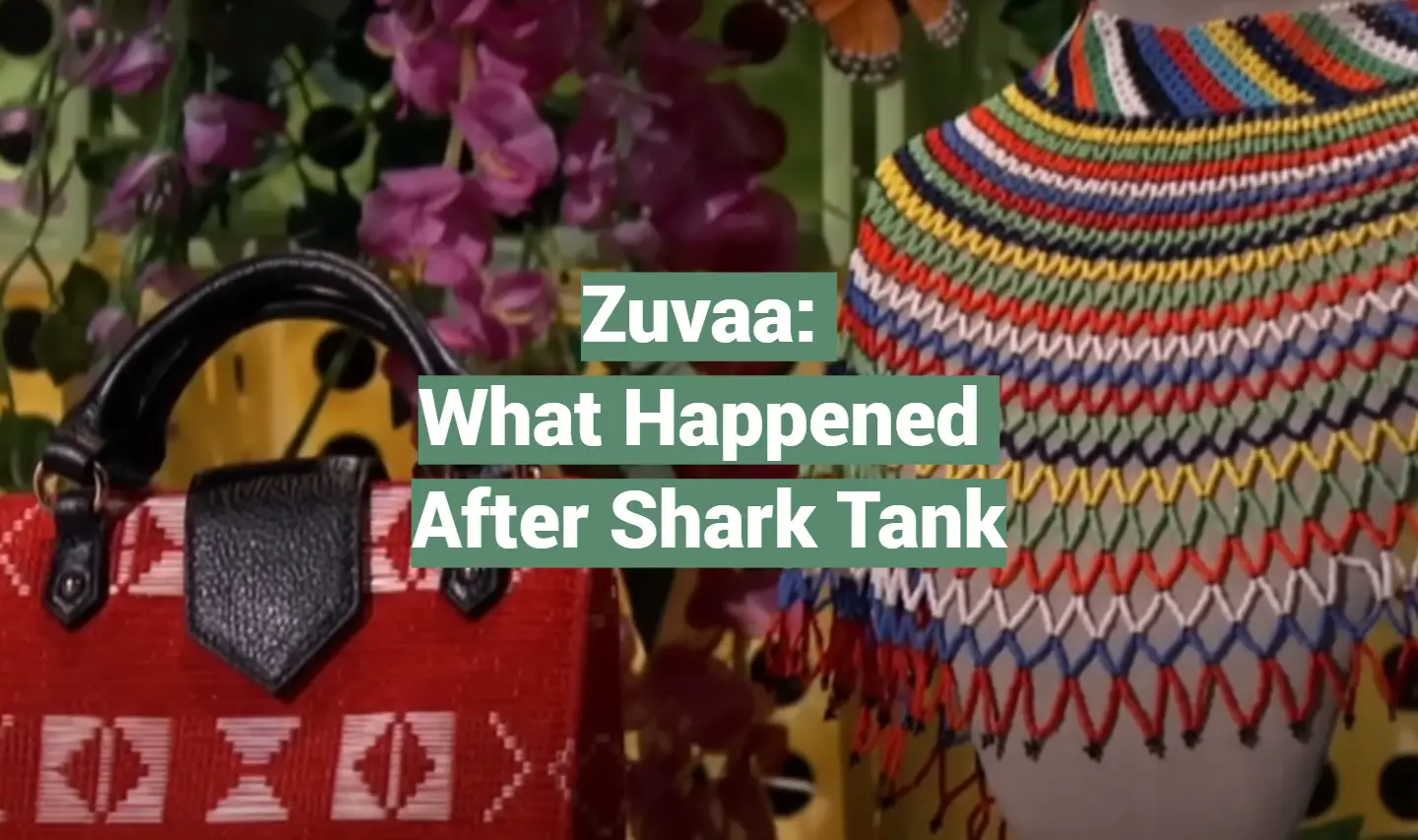








Leave a Reply